How Casual Playing in the Casino can Lead to Gambling Addiction
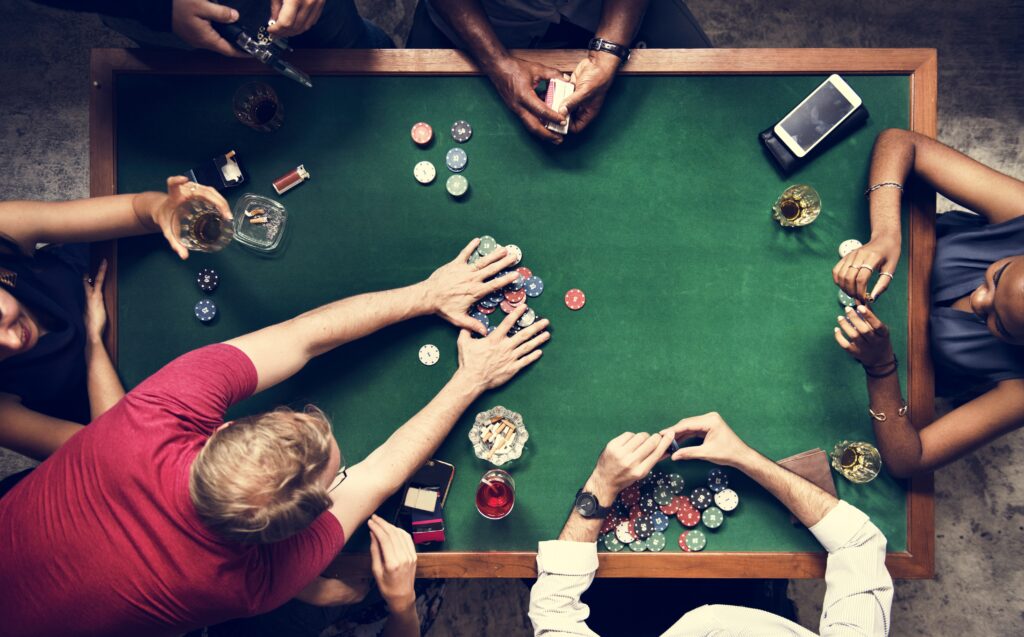
Gambling addiction is a serious problem. But before it starts to cause issues in your life, it actually starts out as a harmless game. Have you ever bet on a basketball game against your friends to see who’ll win? Or took a chance and rolled the dice in a casino?
That’s gambling. But, what is gambling to be exact? By definition, Gambling is wagering something of value on a situation with an unpredictable result to win a prize.
Most people gamble for fun. You can do it in casinos, in sports events, with your friends, and even online. As for the prizes, it could range from money, properties, or even as simple as favours. But, gambling also has a dark side. It could be highly addictive, especially for some people.
You may ask, “How could that be addictive if you’re not taking in any chemicals like in drugs or smoking?”. Exactly. We’re here to find out how and why there is gambling addiction. But first, what is a Gambling Addiction?
Related article: Activities for Problem Gamblers: How to Deal with Gambling Addiction
Gambling Addiction
Gambling Addiction, or pathological gambling, is gambling behaviour that causes disturbances in any crucial area in life be it physically, socially, and mentally. Decades ago, the psychiatric community considered it to be an impulse instead of an addiction. Only in recent years has it been recognized as an addiction due to new insight into the biology of addiction.
Treatment is now needed more than ever because gambling has become a norm and is now more convenient than before. Numerous surveys have found out that there is an estimated count of 2 million people in North America who have a gambling addiction and around 20 million individuals have already found the habit to greatly affect their work and relationships.
What’s in Gambling?
But what makes gambling addictive and how does it hook people to keep on gambling? There could be many reasons. It could include stress, financial problems, or even family history. Here are some more reasons explained in some detail.
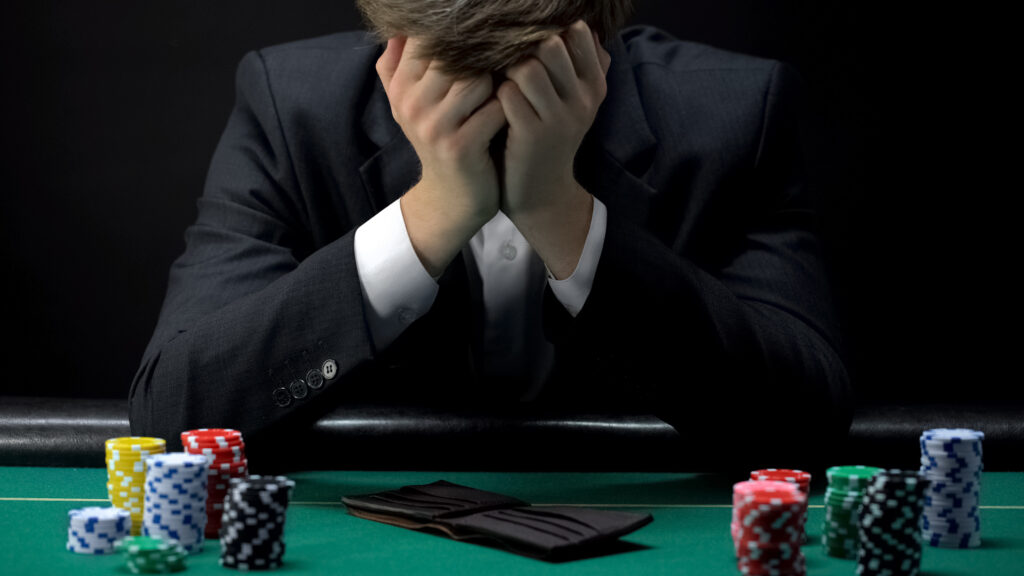
Beginner’s Luck
Winning in games always feels good. But imagine this: winning on a game of chance that you haven’t had much experience before and winning big. How awesome would that feel? Amazing right? That feeling of euphoria is exactly what hooks people to gamble more. Players would think that winning is easy, especially if it happens earlier in their gambling life.
Global Gambling
The internet has given everyone access to a lot of things from the comfort of their own homes, gambling included. With this, a person can have access to gambling anywhere and anytime. But, it’s not just that. Gambling only happens in casinos before and that could put off people, especially if it’s far away. But now, you can do it privately in your home with your friends
What Happens in the Brain
In a study from the 1980s, it was suggested that people who were born with a smaller amount of the chemical norepinephrine were more likely to be addicted to gambling because it compensates for the disproportion of chemicals. High levels of excitement, like in gambling, can cause the brain to produce more of the chemical.
As mentioned earlier, gambling addiction was not even considered as an addiction in the 1980s. It was originally put under impulse-control disorders (ICD) alongside illnesses like pyromania and kleptomania. But with several studies in psychology and neuroscience, it was determined that gambling had more similarities with drug addiction than formerly perceived.
Inside our brain is a group of nerves known as the reward system that connects different regions of the brain that are involved with memory, motivation, and pleasure. It releases a chemical known as dopamine when we do stuff that helps us reproduce or be alive. Dopamine gives us a feeling of satisfaction and incentivizes us to make a habit of the thing we did.
When intaking drugs such as cocaine or meth, the brain is being flooded by dopamine which makes the user feel extreme levels of euphoria. With each use of the drug, the brain adapts and creates less of the chemical and develops a tolerance to it leading to people needing a more substantial amount just to get high.
What research has shown us is that drug addicts and pathological gamblers have similar tendencies for reward-seeking. When substance addicts require increasing amounts to get high, so too are gambling addicts when it comes to going for riskier activities.
Similarly, both problem gamblers and drug addicts experience symptoms of withdrawal when separated from the excitement or drug that they grew accustomed to. Studies have also suggested that there are individuals who are particularly susceptible to both drug and gambling addiction because their reward system is underactive.
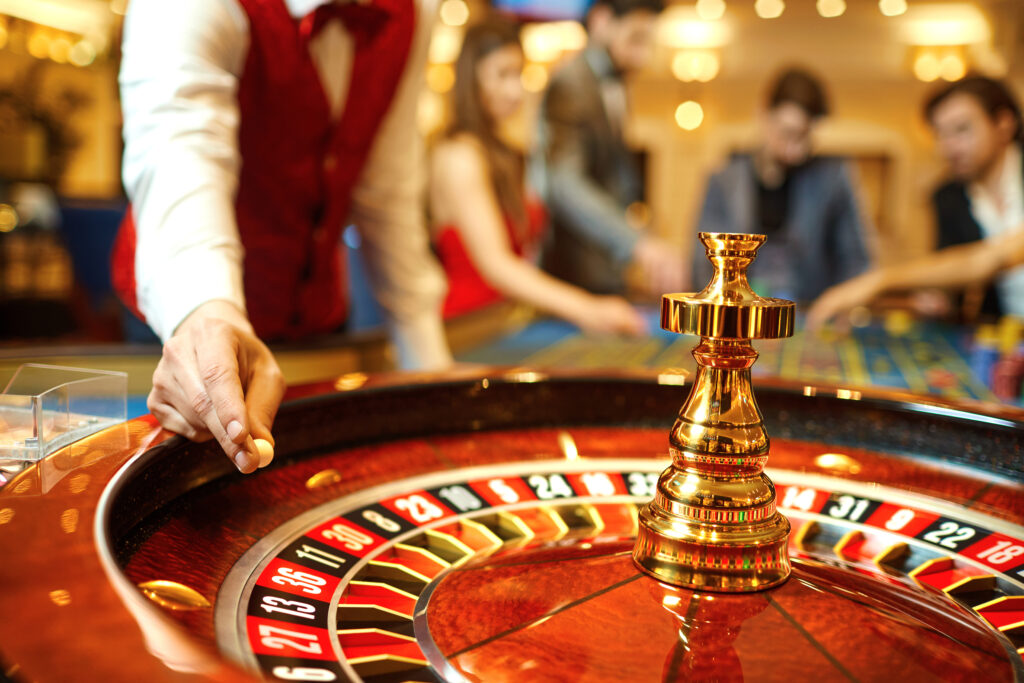
Redefining Boundaries
Understanding the phenomenon that is gambling addiction has redefined the term addiction. Scientists used to think that addiction could only happen when a person is dependent on a chemical. The new definition is when a person is repeatedly pursuing a gratifying experience regardless of major consequences.
That experience could be the intense high from cocaine or meth or the thrill of betting everything on the line in a poker game. Scientists have concluded that anything we do can alter the brain. It makes sense that behaviours that have high rewards, like gambling, can change the brain and the body.
Consequently, psychiatrists and therapists have found that problem gamblers respond better to treatments that are used for addiction compared to tactics for subduing compulsions. Medications for drug addiction has also proven to be more effective compared to medicines used for impulse-control disorders.
Sadly, researchers have estimated that around 80 percent of gambling addicts don’t look for treatment. And of the 20 percent that does go for treatments, 75 percent of them return to their gambling ways.
Related article: Behavioural Therapies for Gambling Addiction
What Makes People Keep Come Back to Casinoes?
A casino is a recreational place or facility that has different types of gambling. People play and gamble in the casino because they want to distress, have fun, and hope to win prizes. The experience of fun and excitement in a casino makes the people keep coming back.
According to most surveys, people gamble because they feel thrilled and they feel like winners. It is an activity that gives pleasure because of the chance of winning money. We play in a casino sometimes because we want to have fun with friends and family.
Some play and gamble to try their luck and chances of winning. Playing in a casino is for fun and excitement, but should be enjoyed casually.
Several studies prove that playing or gambling in a casino can be addictive. Some psychologists are still studying why people won’t stop playing and gambling even if it’s not enjoyable anymore. Casual-casino goers may also get addicted and may keep them coming back.
Casual-casino players tend to keep coming back when they’ve experienced winning. Some do so because they lose and want to get back what they’ve lost. Others wanted to try other games and try their luck. As they keep coming back to the casino, they won’t even realize that they are already hooked.
Some researchers found out that casinos are built to entice people so that they’ll return and play some more. Games in the casinos are being enhanced to provide more excitement to people and will make them stay longer to play. Casinos are also designed to attract people and tempt them to stay and play, besides its business after all.
Some of the reasons why gambling looks compelling that even casual-casino goers become hooked and addicted are the following:
Near-miss effect and chasing your losses
This effect can make the player feel more committed to the game. The player feels highly motivated to stay longer in the game more than what they intended. They say that near-miss and almost win makes the brain to respond to wins, and increases one’s desire to play more.
Feeling like a winner while losing
An example of this is playing in slot machines, where the player thought or felt like they’ve won. There are games design to make losses disguised as wins, even if the person lost, it comes with sound and lights of victory to make it more convincing. Players will lose count of how many they’ve lost and thought that they’ve been winning. This kind of effect will make them stay hooked to the game.
Early big win
Sometimes, a player experiences big wins at their early stage of gambling. A large amount of winning during the early stage of gambling makes them think that they will always land big wins than losing big. As they get more addicted to gambling, they won’t realize how much they’ve lost along the way.
Uncertainty as its reward in the brain
Reward uncertainty is playing a crucial role in attracting people to indulge in gambling. A neurotransmitter in the brain called Dopamine is released during exciting activities. Examples such as eating, sex, and doing drugs cause dopamine to be released.
Lights and sounds egg you on
The lights and sounds are among the casino’s techniques to urge people to play more and stay longer. Studies show that these lights and sounds can trigger or urge people to gamble when associated with reward. These sounds and lights persuade people to keep gambling and play faster.
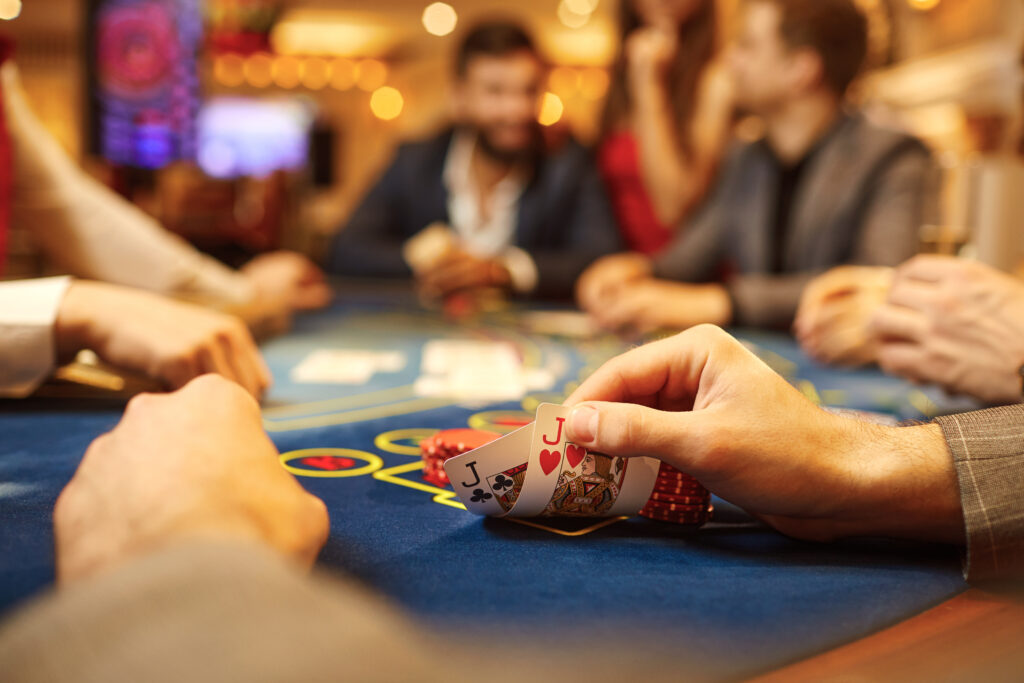
Gambling and Becoming Addicted to It
Gambling is a common and most popular recreational activity enjoyed by adults around the world. Some states and other countries have limitations and restrictions governed by their laws. Certain people get highly addicted to gambling because of its compelling nature.
Some factors drive people to become addicted to gambling, examples of these includes:
- Easy access to gambling – The casino has been more accessible to anyone nowadays. There is even an online casino now that anyone can access in just a click.
- Failing to monitor wins and losses – A person gambling in casinos never tracks their wins and losses. Most of the time, they’re counting their wins which makes them play more to win more.
- Personal Stress – In the same manner as turning to drugs, smoking, and alcohol, people also turn to gamble as an escape from troubles.
- Financial Problems – There are people in a state of desperation with financial problems who believe gambling can be their way out. Unfortunately, most of the time they only make their situation worse.
- Victims of abuse – It is the same as the people who want to escape from stress. A person who has endured physical and mental abuse thinks gambling is the solution for the pain they are suffering.
- Family history of gambling addiction – There is no medical proof that gambling addiction is genetic, some studies suggest that people seeing a family member or loved one going through gambling addiction are prone to become addicted as well.
- Biological Composition – This factor is still being debated upon. Studies are still being conducted whether an individual gets addicted to gambling because of his biological make-up or social influence. Some studies say certain individuals are born with less norepinephrine to get easily addicted to gambling. Norepinephrine is a chemical secreted when experiencing a high level of stress or excitement.
Signs of Gambling Addiction
Getting addicted to gambling becomes a mental disorder. Experts say gambling is not a financial problem but an emotional problem with financial consequences. A person with gambling addiction have the following signs:
- Thinking often about gambling and making plans to gamble
- Gambling when feeling distressed
- Restlessness or irritability when trying to stop gambling
- lying to conceal gambling activities
- Need to gamble with increasing amounts of money spent to feel the excitement
- Returning to gamble again after losing money
- Repeated unsuccessful attempts to stop, control, or reduce gambling
- Experiencing relationship or work problems due to gambling
- Depending on others for money to spend on gambling
There are more risks to gambling addiction. Researchers say people who are addicted to gambling tend to become alcohol and drug addicts. These may cause more serious problems for a person. A person with gambling problems should seek help immediately.
Takeaway
People have their weaknesses and are sometimes become a reason for their downfall. Always think that everything you do in life, there are consequences. Think carefully before you do anything that you’ll regret in the end, it might be too late.
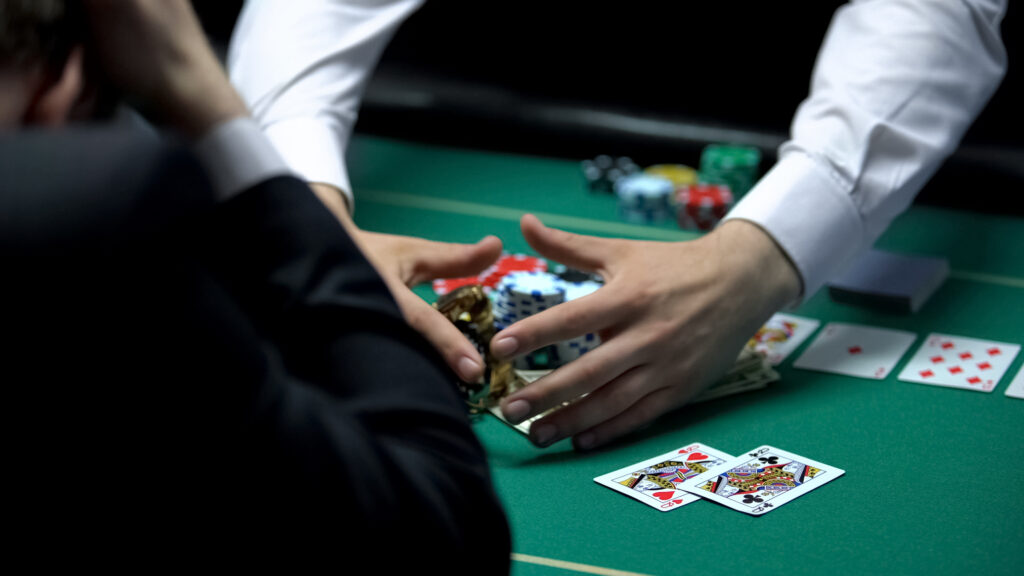
Gambling addiction is a serious illness and should be considered as such. It will cause drastic changes to your brain and body. Your work and social lives will be affected. Understanding how it works is the first step on the right path. If you or someone you know has a gambling addiction, please don’t be afraid to seek help. Call Inspire Change Addiction Rehab in Vancouver for addiction treatment programs.
Related article: Treating Gambling Addiction Through Canadian Gambling Addiction Centers


